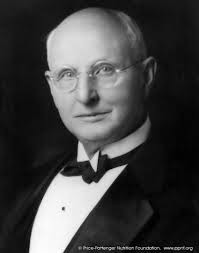Meet Jim & Joan Roberts: Local Chapter Leaders for Weston A. Price Foundation
posted on
September 8, 2021
While the trendy word “Nutrient-Density” may be somewhat new to you, it’s been a mainstay in Jim and Joan Roberts’ vocabulary along with their diet for the last two decades.
In fact, when this enthusiastic couple starts talking about healthy, whole foods, their faces light up. Health and wellness is not only a favorite topic, it’s truly one of their biggest passions.
Joan and Jim Roberts joined us earlier this summer for a farm tour at The Maker’s Meadow. It was an incredibly hot summer day that required a heavy slathering of sunscreen to keep one’s skin from burning while touring our farm mid-day. Amidst the heat and humidity, we captured their big smiles as they held “Joey, the Pet Lamb.”
Today we want to spotlight The Roberts and share more about this special organization they lead locally here in Dayton that focuses on nourishing diets and practices.
In the early 2000s, The Roberts joined the Weston A. Price Foundation (WAPF), a health-focused nonprofit that forever changed their lives. They began to incorporate unprocessed foods into their diet and felt the difference.
The Weston A. Price Foundation was founded in 1999 to disseminate the research of nutrition pioneer Weston A. Price, DDS (1870-1948).

As a dentist, Dr. Price traveled the world and studied health (especially dental health) of indigenous people in Switzerland, the Outer Hebrides, Eskimos, and Indians of North America, Melanesian and Polynesian South Sea Islanders, African tribes, Australian Aborigines, New Zealand Maori and the Indians of South America. Dr. Price discovered that those who ate their native, nutrient-dense foods which were naturally high in vitamins and minerals all had straight teeth, wide arches, a wide, round facial bone structure, and a healthy body.

But when indigenous groups strayed from their native diets and added white flour, sugar and processed foods into their diets, they began to experience myriad health issues, including cavities and crooked teeth.
Jim and Joan took to heart what they learned and began implementing changes at home. Jim says as a result of joining WAPF, he stopped drinking soda and started making kombucha. Joan started making kefir and bone broth. They began eating lots of natural organic foods including grassfed, pasture-raised meats and real (unpasteurized, unhomogenized) milk.

They also began supporting local farmers and artisans who follow organic farming practices such as we do here at The Maker’s Meadow.
During 2005-2009 and since 2018, Jim and Joan have served as local Dayton Chapter Leaders of the nonprofit WAPF. The chapter meets monthly from September through May (except in December). Details are posted on their Facebook page and website. Their meetings feature a variety of speakers who support a nourishing traditional diet and practices that promote vibrant health.
In fact, it was at one of these meetings where Jim and Joan first met John Filbrun, owner and operator of The Maker’s Meadow.
Now our farm is blessed to have many customers who are members of WAPF!
If you’re interested in learning more about this organization, please review the information below.
And, if you attend a meeting, be sure to look for Jim and Joan and tell them that you read about them here!
For more information-
Facebook Name: The Dayton Chapter of the Weston A Price Foundation
Dayton Chapter Website: https://chapters.westonaprice.org/daytonoh/
WAPF organization Website: https://www.westonaprice.org
Membership: https://www.westonaprice.org/why-join/




